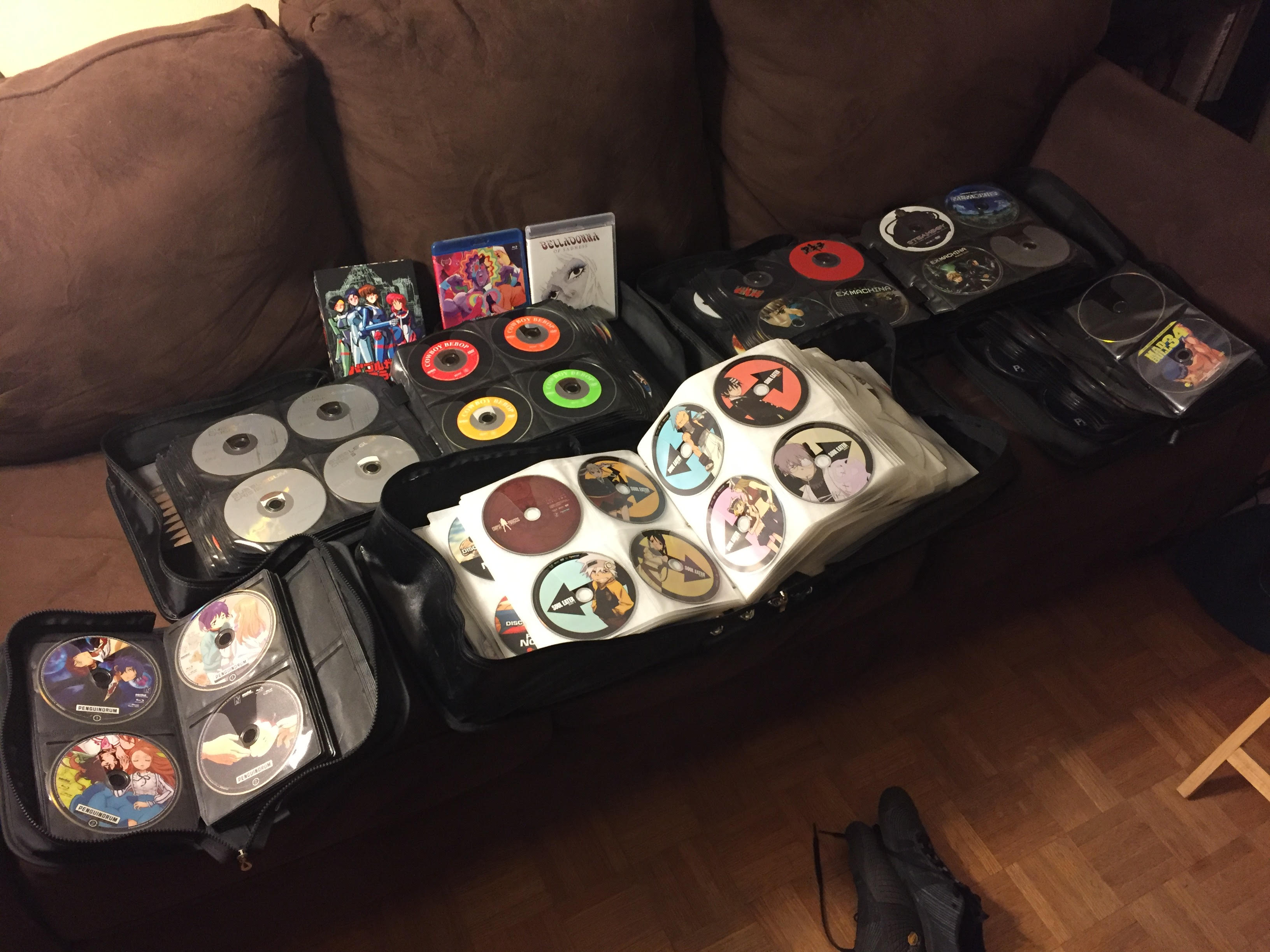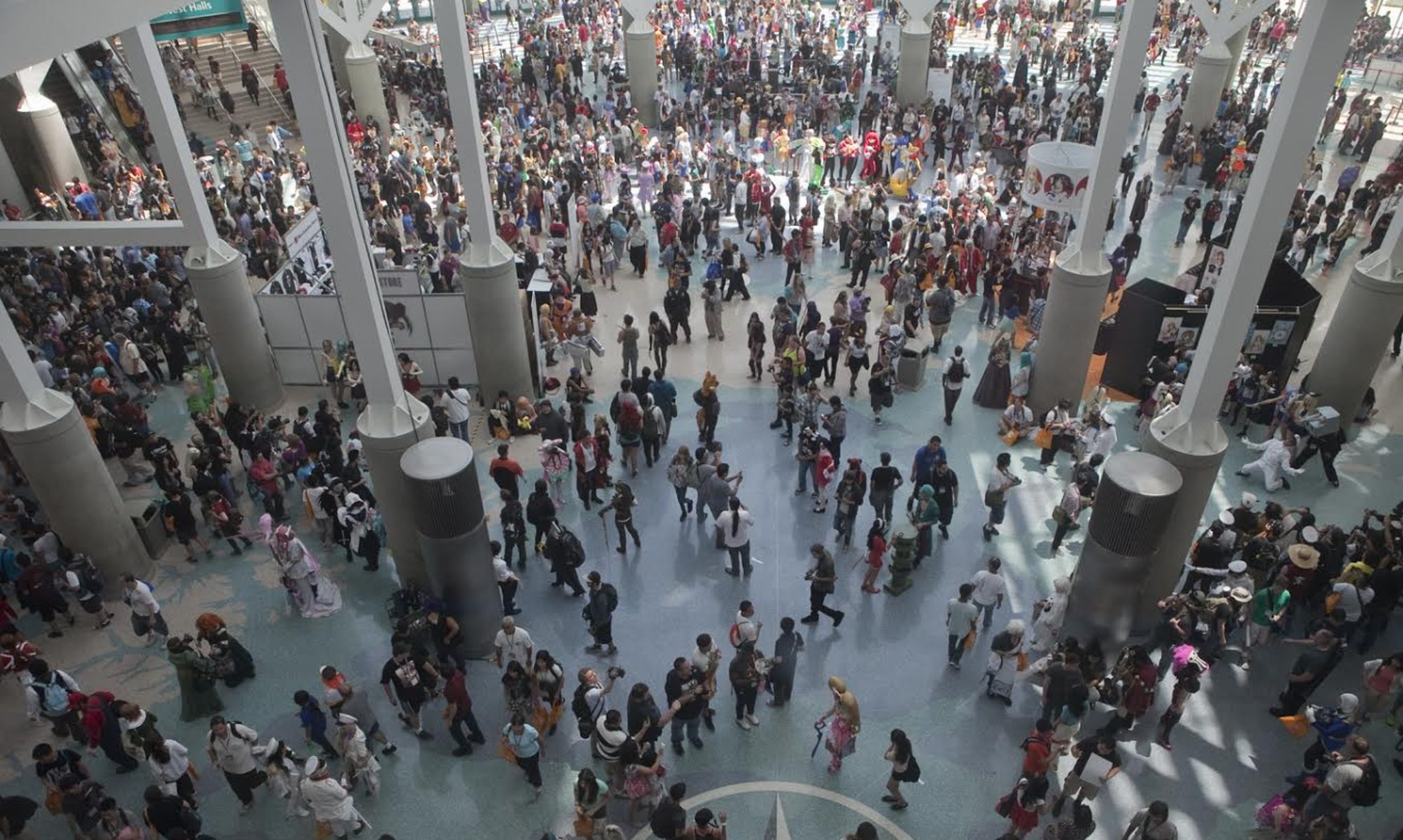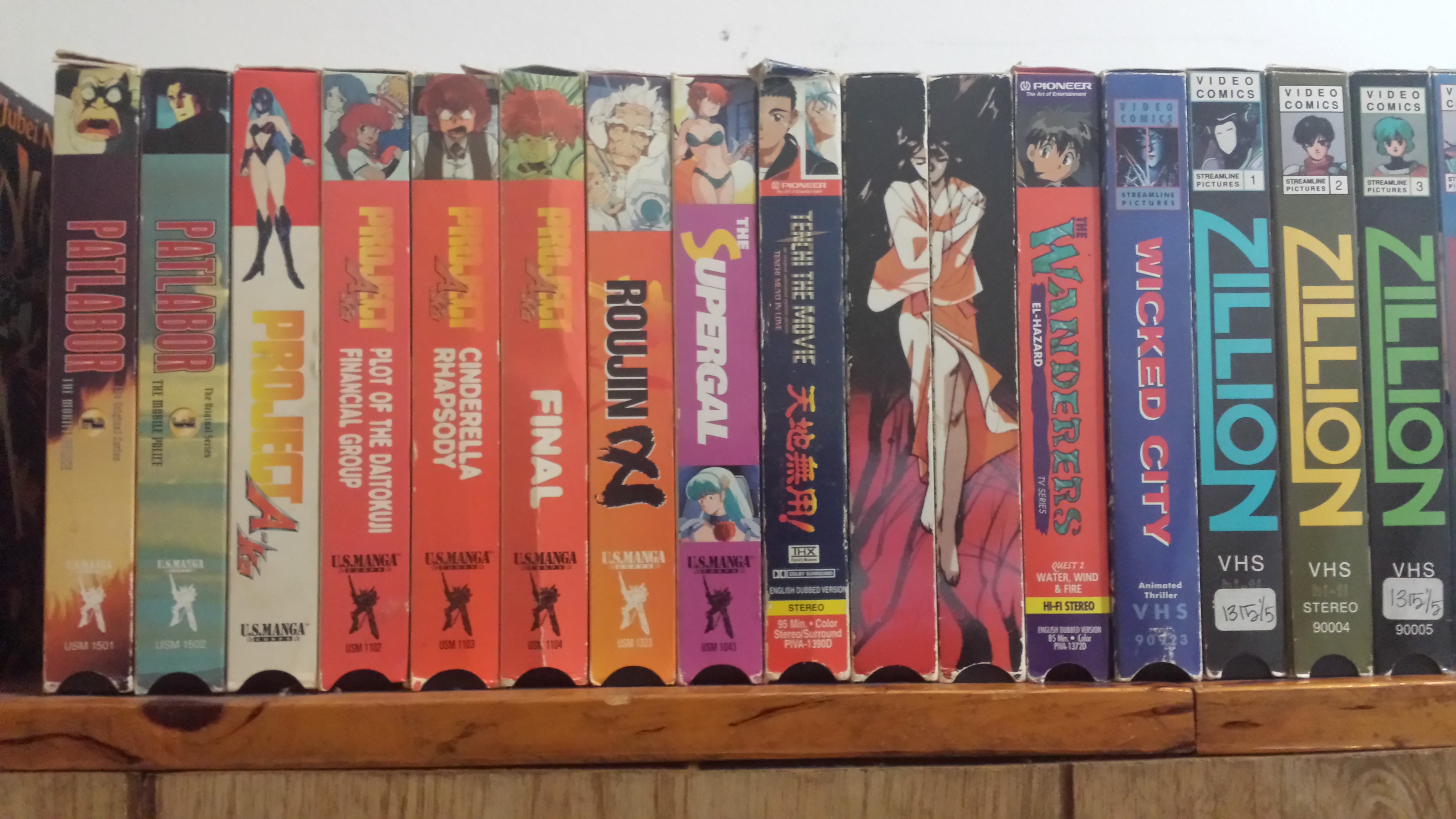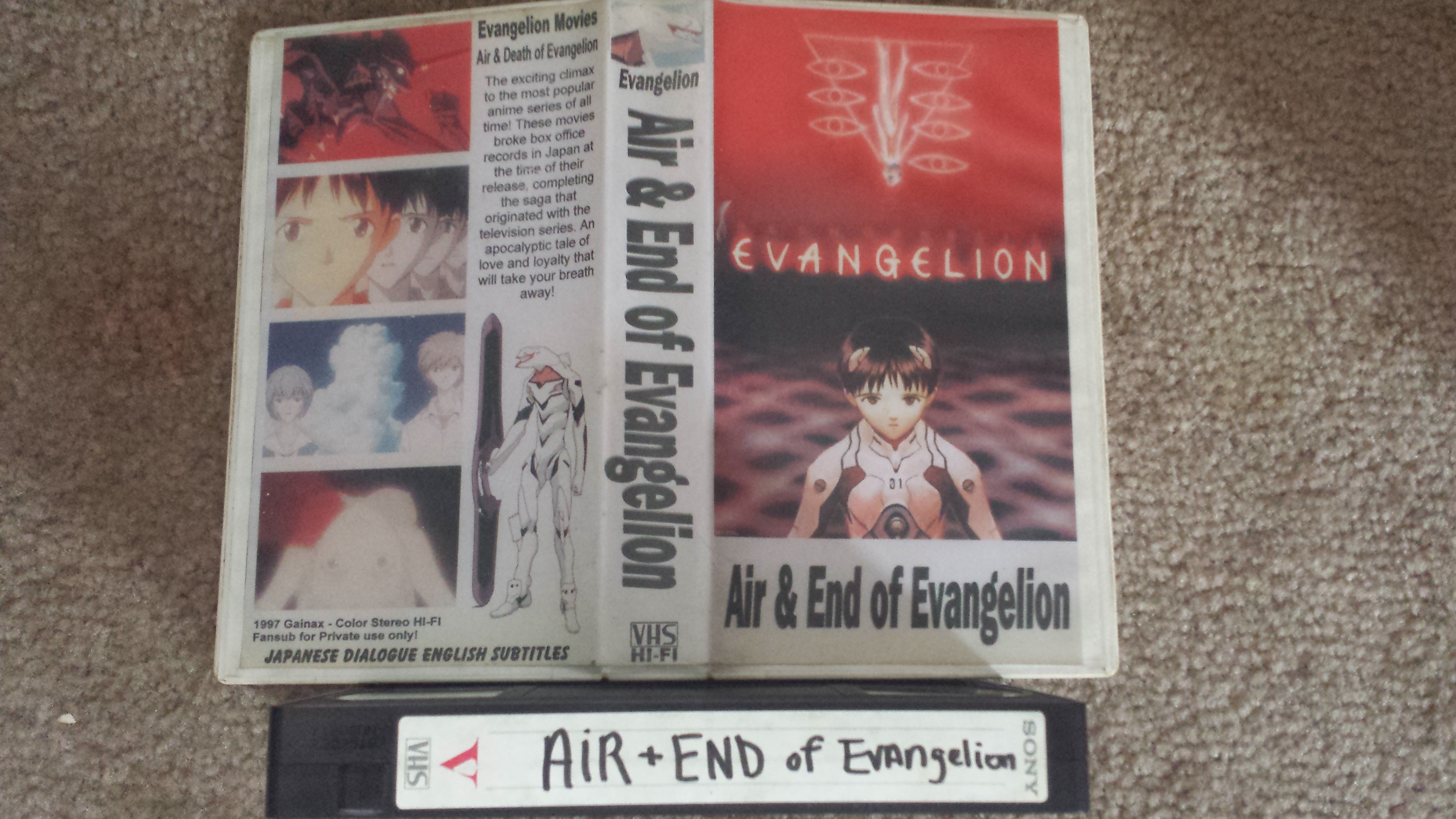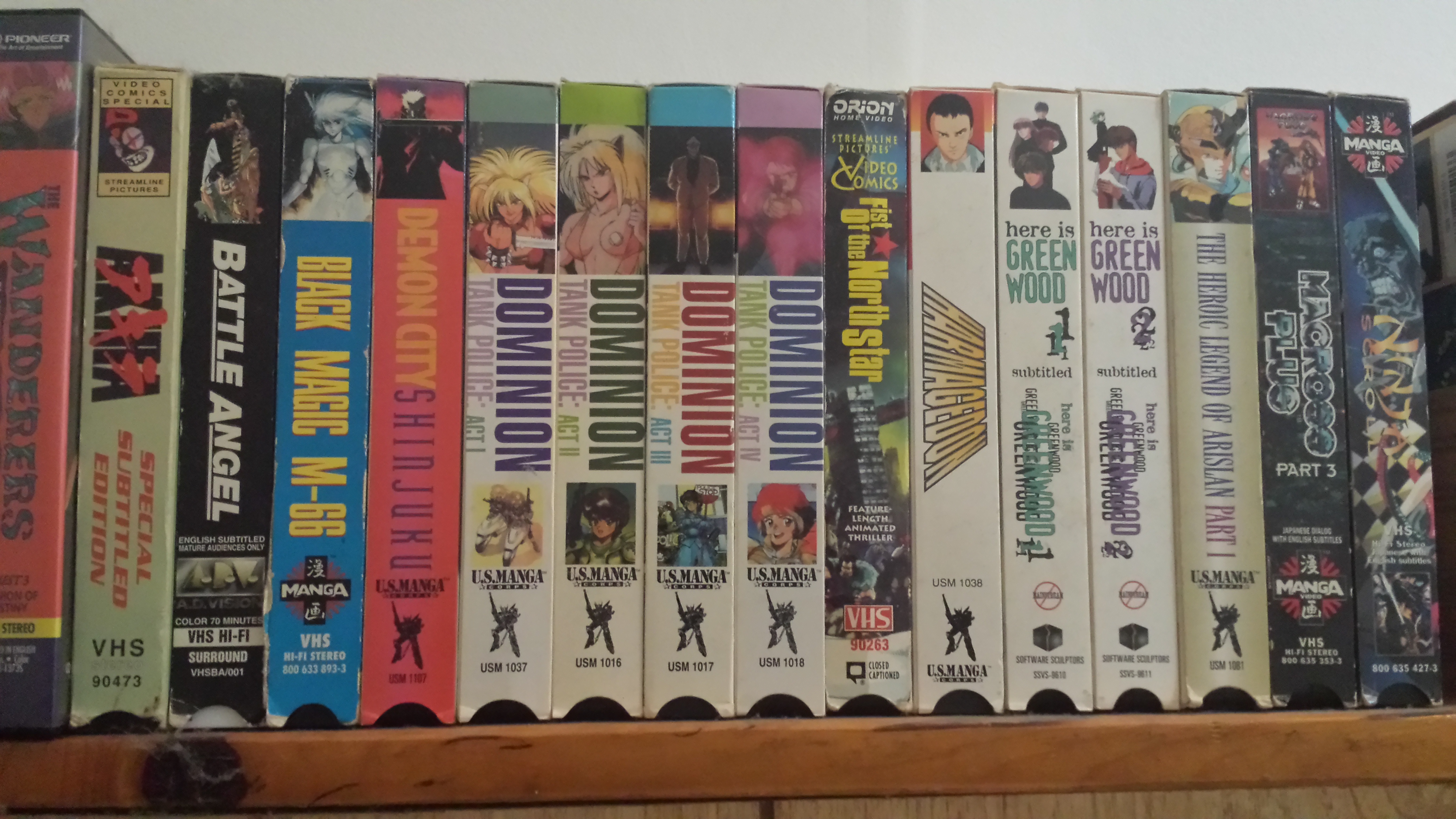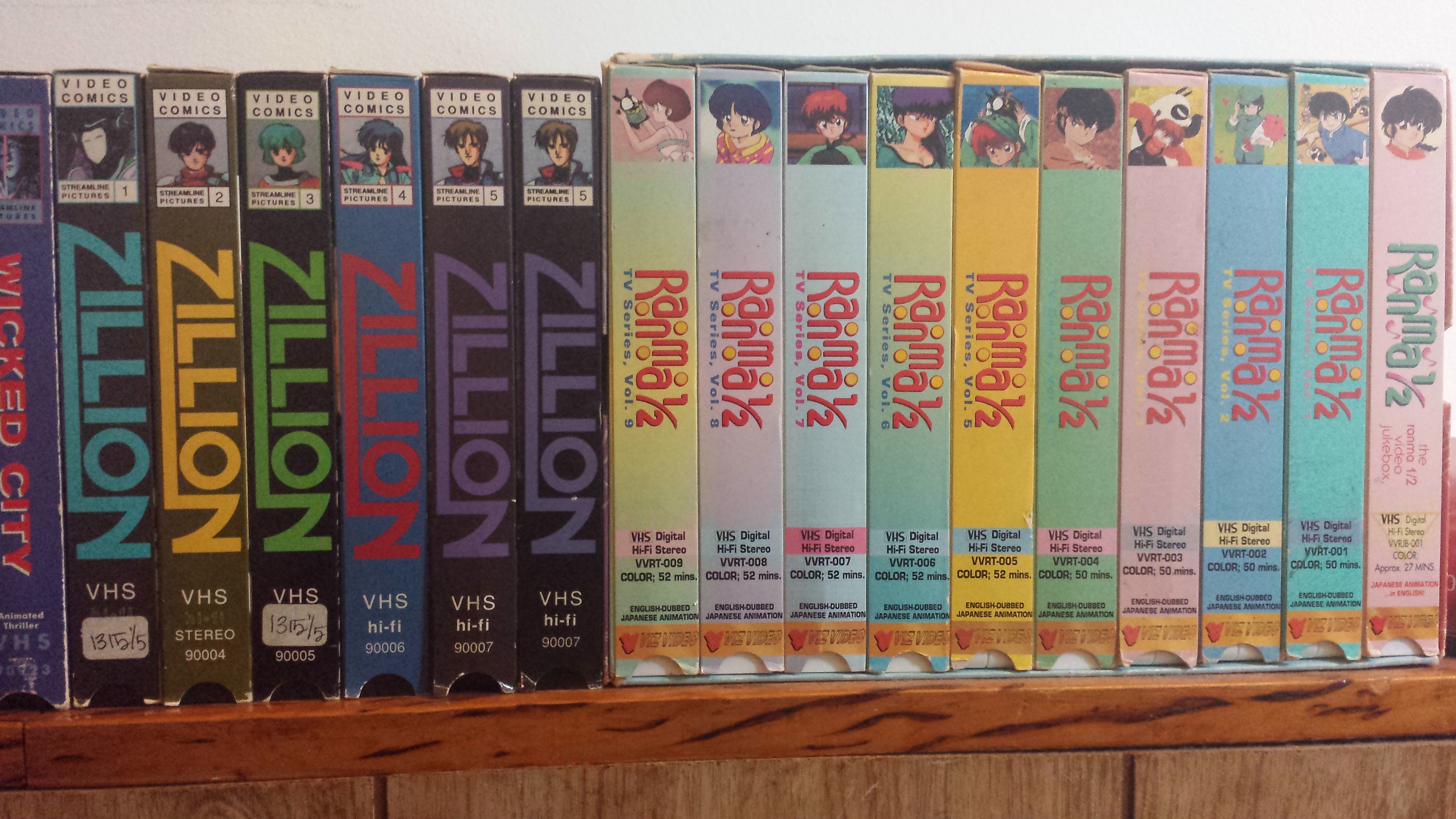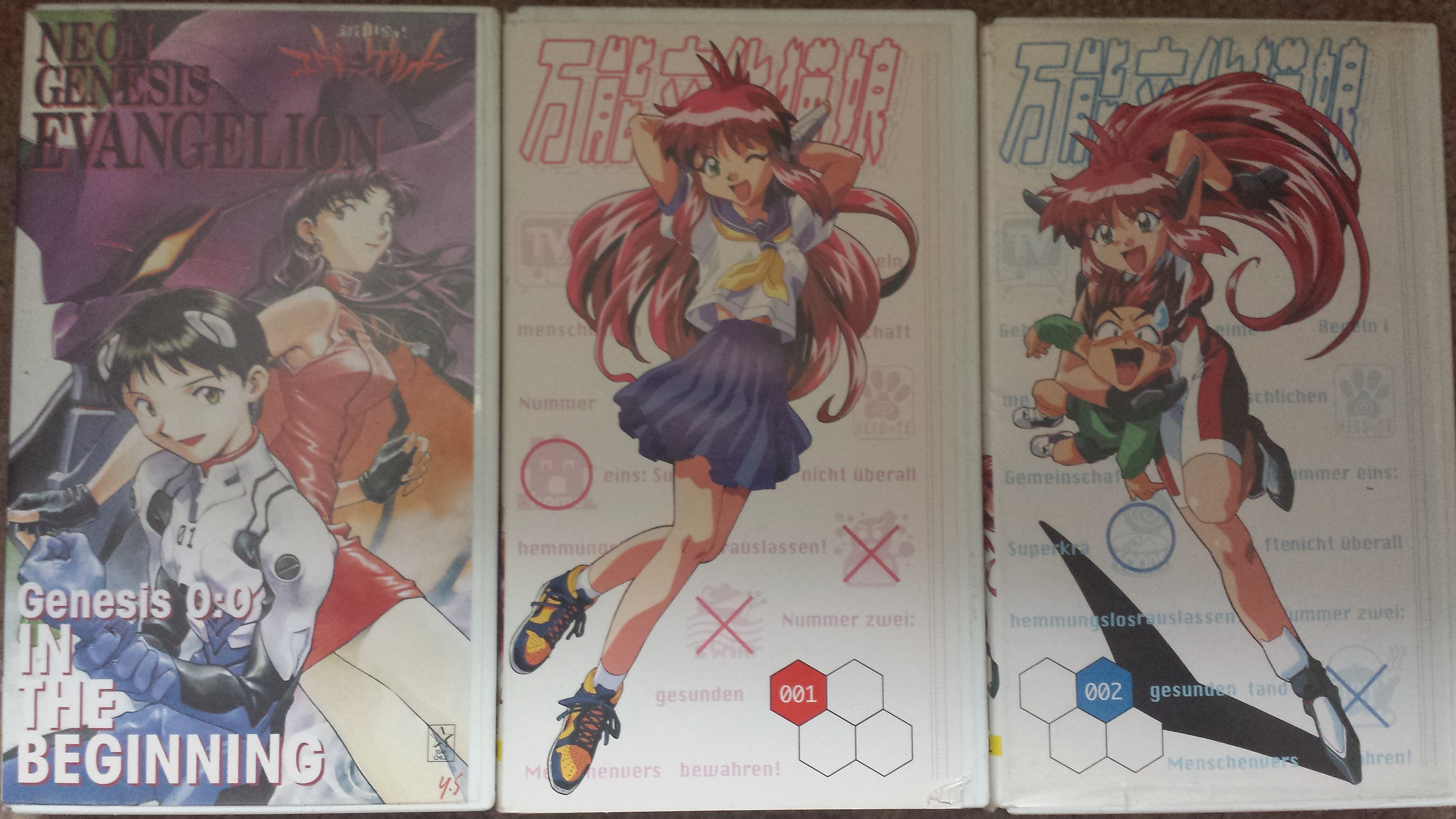Age: 21
Location: Minnesota
When did you discover anime? I initially wasn’t aware of anime as a concept, but I had singled out Toonami programming as “action cartoons” as a kid, and I wasn’t interested in those for the longest time. While I had gotten into some shows like Pokemon, Hamtaro, YuGiOh!, Mega Man, and Kirby, I don’t think those shows opened the door to the rest of anime in the same way that Dragon Ball did.
My introduction to Dragon Ball was strange, since I actually got into it, as unbelievable as it may sound, through Dragon Ball GT. I was at a party of one of my dad’s friends in the June of 2004, and being bored, I decided to watch whatever I could find on tv. The only channel with anything on that remotely interested me was Cartoon Network, and Toonami came on. I didn’t intend to watch DBGT, but since that was all that was on I watched it anyway. The episode in question was #40 – “Piccolo’s Decision” – the episode where Piccolo sacrifices himself alongside the earth to save Goku and destroy the Black Star Dragon Balls. I knew nothing about the series, but the relationships between Piccolo, Goku, and Gohan seemed like a big deal, as did Piccolo’s sacrifice, and in the span of that episode he appealed to me a lot as a character.
I attempted to watch more GT off and on for a couple weeks after that, but wasn’t really grabbed by it. That is until early January 2005 when I randomly caught the end of episode #61, when the 4-Star Dragon Ball manifests from Goku’s forehead. I don’t know why exactly that piqued my interest, but I tuned in the next week for episode #62, when Nova Shenron is revived and teams up with Goku to fight Omega Shenron, only to sacrifice himself in vain. This episode struck me because it told a redemption story of a formerly evil villain now fighting alongside a hero to fight a greater foe that I really hadn’t seen before, as well as connecting him to Goku through the legacy and connection they share through the four star Dragon Ball. The apologetic tone Nova has before he crumbles to death was a tragic turn I wasn’t expecting. The situation in the show in general seemed really dire, and that made me want to see how the fight with Omega Shenron would end.
Episode #63 really blew me away with the sense of stakes. Goku pulls power from the entire universe, all the people who he’s helped in the series prior, in this one last ditch attempt to defeat Omega Shenron that nearly kills him. Again, I was blown away by the sense of scale, the larger than life stakes, and the legacy presented of the show – how big this moment felt as a culmination of everything Goku had gone through until this point. I wasn’t expecting the show to end the next week, and it hit me hard. I actually, literally cried for days after watching the ending. A show I had just fallen in love with was now over – I felt I had missed my chance to watch it and now never would.
Then I was sadly looking at the Cartoon Network schedule one night trying to see if they’d be playing any reruns, and I learned that there WERE still new episodes — the LOST EPISODES! That reinvigorated me, and from there I began a year-long binge of anything and everything Dragon Ball. It also made watching Toonami every week a necessity to me, and I slowly was introduced to more anime through what was introduced to the block that year – namely Zatch Bell, One Piece, Naruto, and Bobobo-bo Bo-bobo. By the end of 2005, or maybe early 2006, I had developed an awareness of anime as a concept through looking up information on what was airing on Toonami online and discovering there were hundreds of more shows in their vein. From then on I actively sought out more anime to watch and enjoy.
What appealed to you about anime when you first discovered it? The sense of scope in their worlds, the complexity of the action choreography, the more detailed character designs, and the long-form serialized storytelling. No American shows were doing what Dragon Ball did—devoting multiple episodes to a single fight—and that kind of storytelling really made anime stories feel grander in scope than other cartoons on tv at the time.
Sounds like you were really into Dragon Ball. How did you express your fandom? I drew Dragon Ball fan-art almost every day for a year after I got into it. I essentially learned how to draw by trying to replicate images from the manga. I even made my own fan-comics, usually about Cell and Buu, who were my favorite characters to draw because of how unique their designs were. Artistically I’d say I was even more inspired by Dr. Slump though. Toriyama’s art was at its peak in that series, and even as a kid I could recognize his genius and tried to copy his mecha and character design sensibilities. It also inspired two characters who I’d use in my own comics as a kid, one of them basically being Dr. Mashirito except taller and skinnier, and another being King Nikochan but with a flatter design and minimalist facial features. I still make use of these characters in projects I do to this day, though their designs are a lot more distinct now. Aside from art projects I’d also write fan-fiction and what-if stories about characters I liked, mainly underutilized ones like Zarbon and Captain Ginyu. I also tried planning out how a faithful-to-the-manga Dragon Ball anime would be paced like years before Dragon Ball Kai came out. My version was shorter.
What was the first anime-related purchase you made, and how much did it cost? My first manga and first anime purchases occurred in March 2005 and were both related to each other. The first manga I bought was Dragon Ball Z volume 18 at Barnes&Noble, which cost $9.99. This was the latest volume at the time, and it was also the volume where Gohan transforms into Super Saiyan 2 to fight Cell, which I hadn’t seen yet but knew was a big moment in the series from it being referenced so heavily in the Buu saga anime episodes I’d already seen. I remember being confused how to read it at first, turning the pages right to left but reading them left to right, but eventually I figured out that I needed to read the pages right to left too.
A week or so later my family dragged me along to Best Buy to pick up something, and I found my way to the DVD section and saw they had anime DVDs there. There was a lot of stuff I was interested in, like a Dragon Ball boxset that had a Goku action figure included with it, but I was mainly debating whether to get a Dragon Ball Z dvd or a Hamtaro dvd, which was a tough decision because Hamtaro was off tv by this point and I hadn’t seen it in a long time. Eventually, I decided to buy the DBZ dvd “Cell Games – Awakening,” because that contained the episode of the anime where Gohan transforms into SSJ2 and having read the scene in the manga I wanted to see the animated version. I remember being shocked at how expensive the dvd was, around $29.99, which might be an overestimate but it definitely cost more than $20 and buying it used up all my allowance for two months. The episodes included on that disc were great, and I also got to experience the Japanese version of the show for the first time since it was included, and was how I found out that DBZ was originally a Japanese show in the first place. But in retrospect, considering how easy and cheap it is to watch DBZ now, I really wish I’d picked up that Hamtaro DVD after all.
What was it like to be a part of anime fandom at the time? To be honest, I didn’t get into the larger anime fandom until around 2012. For the longest time, I was pretty alone in my interest in anime. People would know Dragon Ball and Naruto, sometimes even One Piece, but I didn’t know anyone else who was really interested in watching anime until the later years of high school. That’s when someone started an anime club at my school, which showed pretty mainstream-y stuff like Black Butler, Hetalia, Ouran High School Host Club, etc.
I also started meeting people, who weren’t necessarily anime fans, who had watched stuff like Fullmetal Alchemist Brotherhood and Soul Eater. I started really getting into the community after the Toonami 2012 April Fools Stunt, mainly ToonZone and Animation Revelation, and talking with other serious anime fans on there helped me deepen my anime knowledge and I started watching and reading more anime and manga in the next year or two than I had ever in the seven or eight years prior.
Could you tell me more about your high school anime club? My high-school anime club was started in my junior year by two sophomore girls. I remember flyers promoting it using art from
Ouran High School Host Club and
Fullmetal Alchemist and being excited at the prospect at finally meeting and making friends with fellow anime fans. It didn’t pan out that way. Most of the club was segmented into their own factions most of the time and did other things while whatever anime of the day was playing. My tastes didn’t really align much with anybody else’s, so I couldn’t really find common ground to talk with many people. A lot of them would also play annoying pranks and generally act mean-spirited towards me, making fun of my artwork during the art contests or outright lying to me to make me do something embarrassing, so I stopped visiting the club before too long. I briefly returned the week after the Toonami April Fools stunt because I was hoping to find other people there who had watched it and wanted to discuss what happened, but nobody there even knew what Toonami was. That was the last time I visited the club. My younger brother would later visit it when he attended high school, and according to him the club became really unfocused and unpleasant after the original founders graduated, and without strong leadership or a sense of camaraderie, the club was eventually disbanded.
Even though I don’t have many fond memories of the club, it did introduce me to a couple shows like Black Butler and a few Ghibli movies like Princess Mononoke that I really liked, so I did get something out of it. It’s just a shame I couldn’t make any friends there like I wanted to.
Can you tell me about the first time you made friends with another fan? It was a long and strange journey to make friends who liked anime. Most didn’t even know what it was, and I had to try and introduce it to them. In elementary school I could easily talk about Pokemon and YuGiOh! and other shows that aired on Kids WB!, but no one had seen any of the stuff on Toonami, not even Dragon Ball. I would bring Dragon Ball books to school occasionally and sometimes I would describe to people what I was reading. I distinctly remember explaining the fight between Mr. Satan and Android 18 to a classmate and making him laugh so hard that he spat all over my book. Later on when I had my friends or cousins over to my house I’d show them Dragon Ball episodes and movies, but I never could convert anyone into being more than a casual fan of just that series and not anime as a whole. One of the cousins I introduced to Dragon Ball did get into anime more deeply a few years later, but I stopped visiting him regularly by that point.
In middle school I never talked about anime with anyone my age, but I showed my English teacher the “Holmes Freak Murder Case” two-parter of Case Closed once and she liked it. I also managed to show another episode of the series during an art class, specifically episode 60 “Illustrated Murder,” using some flimsy justification that it was relevant to “art.” I never gave up trying to introduce people to anime I liked, but looking back the only people who were ever willing to give it a chance were adults, and even then Case Closed was the only show they’d enjoy.
I was still trying to get people into anime in high school. When we had to give a PowerPoint presentation in my Intro to Business class, I gave a 10-minute presentation about One Piece. It actually went over pretty well and got a few people into it, though none of them became my friends. I would often reference Dragon Ball in class projects and show clips to people whenever I had the chance. In ski club I kept trying to pitch anime movies for us to watch on bus trips, but they would laugh off every suggestion, and the one time I managed to get them to play the Trigun movie the chaperone interrupted and replaced it because he hated anime. So with every success came a set-back.
But because I never hid my interest in anime people knew I liked it, and would ask me questions sometimes. At first they only asked me about Dragon Ball and Naruto, but eventually they began to talk to me about other shows too. My anime fandom became a huge part of my identity in high school, but rather than ostracize me, it made me stand out and interesting to people. I think the culmination of it all was when I gave a very anime-heavy presentation in my IB Theory of Knowledge class that used clips from Dragon Ball, One Piece, Trigun, and Bobobo-bo Bo-bobo to illustrate animation’s various merits as an art form. The examples I showed, particularly Wolfwood’s death scene in Trigun and the “dysfunctional wooden spoon family drama” from Bobobo episode 6, were well-received even though few had seen these shows before. The presentation was such a huge hit that people became so interested in discussing animation as art and asked me so many questions about it that I managed to talk for the entire hour-long runtime of the class.
Eventually, whether it was thanks to my references and recommendations, or because anime was easier to find and consume than ever before, by the time I was a senior most people in my class were watching anime to some degree. I made friends with two guys in my classes who I’d often collaborate with on school projects, and we’d talk about all sorts of shows ranging from the in-vogue hits like Fullmetal Alchemist: Brotherhood and Soul Eater to classics like Cowboy Bebop and Lupin the Third. We’d also reference anime heavily in our class presentations, like quoting verbatim Wolfwood’s dying words, or making an elaborate fourth-wall breaking parody of the End of Evangelion in Shakespearean dialect. My love for anime ending up becoming the basis for a lot of my friendships in high school, and that has held true for most of the friendships I’ve made throughout college, both on and off the net.
Was the Internet a part of fandom at the time? I mainly read discussions on Toonzone and other Dragon Ball and Toonami fansites in the early days. I didn’t join the forums myself until 2007, but I didn’t really have any meaningful conversations except those about Dragon Ball and the Toonami block itself.
Do you remember your first convention? My first convention was pretty recent. It was the 2015 New York Comic Con. I didn’t go for just for anime content—I just wanted to attend NYCC while I was still in New York for college, having missed out on it during the previous two years. I was blown away by the sheer amount of people there and how crowded it was. Masashi Kishimoto was invited to Comic Con that year and while I was thinking of attending I didn’t realize that not only did I need to reserve a spot beforehand, but I had to wait for over an hour in a massive line. I learned from my mistake when Yusei Matsui came over last year. The only other anime-specific memory I can remember is attending the Yokai Watch dub premiere screening, which was a disaster. The episode froze up mid-way through and they couldn’t fix it, disappointing all the kids and making their parents very upset. The room they were showing it in was a comfy place to relax for 20 minutes though.
For you, what’s the biggest contrast between anime fandom then and anime fandom today? I see the biggest difference in how I’ve gone from having no friends who are into anime to all my friends being into anime. It’s so much easier to meet new fans and make friends than it was ten years ago. Anime being more easily accessible and the ability to connect with people on social media has definitely helped the community expand. I never had a sense of there being an anime community where I lived for years, and now I regularly attend local theatrical screenings of anime films and conventions and see that there are thousands if not tens of thousands of fans living close by. Anime might not yet be “mainstream,” but when Your Name gets played for five weeks straight at an AMC theater in a small suburban town, I think it’s a sign people have become more welcoming of it. So I’d say the anime fandom is way bigger and way more accessible now, and not seen as such a strange a thing to be into as it was even a decade ago.
Siddarth can be reached on Twitter.
